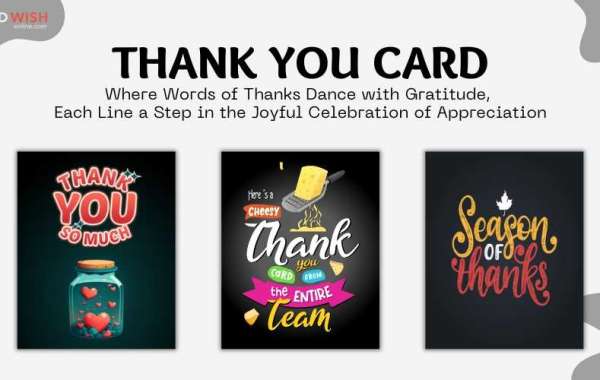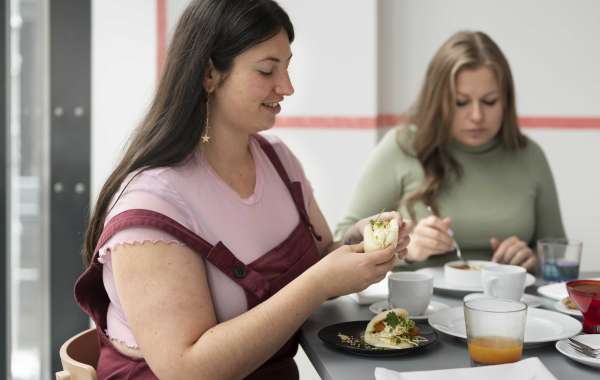Introduction:
Expressing gratitude through thank you cards is a timeless tradition that allows us to convey our appreciation for the kindness and thoughtfulness of others. Sending a well-crafted thank you card not only shows good manners but also strengthens relationships. However, navigating the world of thank you card etiquette can be challenging. In this article, we will explore the dos and don'ts of thank you card etiquette for various occasions, ensuring that your appreciation is conveyed appropriately and effectively.
Dos of Thank You Card Etiquette:
Be Prompt:
Sending a thank you card in a timely manner is crucial. Aim to send your card within two weeks of receiving a gift, attending an event, or receiving assistance. Promptness demonstrates your gratitude and attention to detail.
Personalize Your Message:
Take the time to personalize your thank you card by including specific details about the gift, event, or favor you are appreciating. Mentioning how the gesture made you feel or how you plan to use the gift adds a thoughtful touch and shows that you genuinely value the person's effort.
Use Polite Language:
When writing a thank you card, maintain a polite and respectful tone. Begin with a warm greeting and use phrases such as "Dear," "Thank you so much for," and "I greatly appreciate." Be sincere and avoid generic or overly formal language.
Handwritten Cards:
Opt for handwritten thank you cards whenever possible. The personal touch of handwriting adds warmth and authenticity to your message. However, if circumstances do not allow for a handwritten note, a well-crafted email or typed letter can also be acceptable.
Mention Future Interaction:
Express your desire to maintain the relationship or meet again in the future. This conveys your appreciation for the person beyond the specific occasion and fosters a sense of goodwill.
Don'ts of Thank You Card Etiquette:
Using Preprinted Messages:
Avoid using generic, preprinted thank you cards that lack personalization. While they may save time, they can come across as impersonal and insincere. Take the time to craft a heartfelt message that reflects your genuine gratitude.
Delaying Sending Thank You Cards:
Procrastination can undermine the sincerity of your appreciation. Avoid delaying the sending of thank you cards, as it may convey a lack of gratitude or appreciation for the gesture made by the recipient.
Being Vague:
Ensure that your thank you card clearly states what you are appreciating. Being specific about the gift, favor, or event you are thanking the recipient for shows that you genuinely value their effort and thoughtfulness.
Overlooking Small Gestures:
Do not overlook small acts of kindness. Whether it's a simple favor or a small token of appreciation, acknowledging and expressing gratitude for even the smallest gestures is important. It demonstrates your attention to detail and thoughtfulness.
Asking for More:
Avoid using a thank you card as an opportunity to request additional favors, gifts, or assistance. It can come across as ungrateful and diminish the sincerity of your appreciation. Keep the focus on expressing your gratitude rather than seeking further benefits.
Here are some reasons why sharing thank you cards is important:
- Genuine expression of gratitude: Thank you cards allow you to convey your gratitude in a more personal and heartfelt manner. Taking the time to write a thoughtful message by hand shows that you truly appreciate the recipient's actions or kindness. It adds a personal touch that can make the recipient feel valued and acknowledged.
- Building and strengthening relationships: By sending a thank you ecards, you strengthen the bond between yourself and the recipient. It shows that you recognize and appreciate their efforts, which fosters a sense of connection and goodwill. Whether it's expressing thanks for a gift, a favor, or simply someone's presence in your life, sending a thank you card can help nurture and maintain positive relationships.
- Offline connection in a digital age: In an era dominated by digital communication, receiving a physical thank you card can be a pleasant surprise. It breaks the monotony of emails and text messages, and the tangible nature of a card creates a more personal connection. It demonstrates that you are willing to invest time and effort to express your gratitude, making the gesture more memorable and meaningful.
- Spreading positivity and happiness: Gratitude has a powerful impact on our well-being and mental health. By sharing thank you cards, you not only uplift the spirits of the recipient but also cultivate a positive mindset within yourself. Expressing gratitude helps you focus on the positive aspects of your life and encourages a sense of contentment and happiness.
- Preserving a tradition:Free Thank you cards are part of a long-standing tradition of expressing gratitude. By continuing to send thank you cards, you contribute to the preservation of this meaningful practice. It reminds us of the importance of acknowledging and appreciating the kindness and generosity of others.
Conclusion:
Thank you cards are a powerful tool for expressing appreciation and maintaining strong relationships. By following the dos and don'ts of thank you card etiquette, you can ensure that your gratitude is conveyed effectively and sincerely. Remember to be prompt, personalize your message, use polite language, and consider the occasion when crafting your thank you cards. By adhering to these guidelines, you will not only show good manners but also foster a sense of goodwill and strengthen your connections with others.







